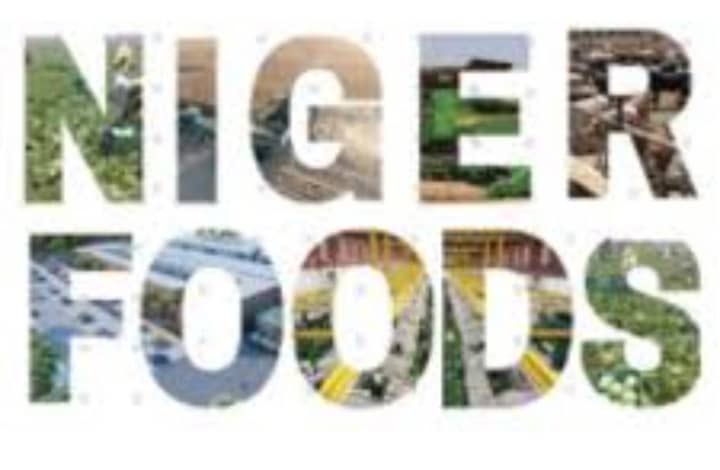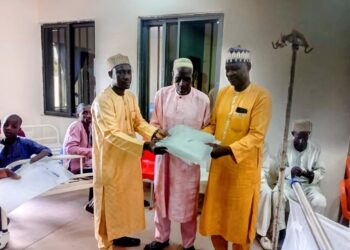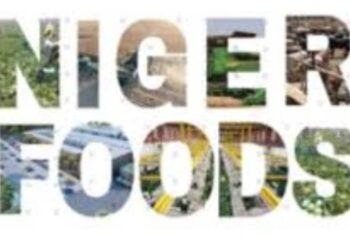N3.4 Billion Input Loan, Only N25 Million Recovered. Niger Foods Clears Air on Shinkafa Cluster Controversy.
From Our Correspondent
Niger Foods Company Limited has disclosed that only N25 million, representing just 0.74% out of the total N3.4 billion has been recovered from the Shinkafa Cluster, despite the guarantor’s written commitment to complete repayment.
The company’s Chairman, Mr. Sammy Adigun, in a statement issued in Minna,
debunked circulating claims suggesting that the ongoing investigation involving the Shinkafa Cluster is politically motivated, describing such allegations as false, misleading, and deliberately intended to distract the public from the real issues.
He clarified that the matter originates from a breach of agreement under the Niger Foods Input Financing Program, a scheme designed to support genuine smallholder farmers across Niger State through transparent and bank-verified input financing.
According to the company, the program operates on a cooperative-based model where farmer clusters or cooperatives are solely guaranteed by their executives or cluster heads, not by the government or politicians.
The company disclosed that the Shinkafa Cluster, under the leadership of Mallam Idris Usman Makanta (popularly known as Shinkafan Nupe), benefited from the program during both the twenty twenty four wet and dry seasons.
Niger Foods said all farms were mapped, coordinates recorded, and three critical documents were duly signed by Makanta, a Farming Framework Agreement, a Global Standing Instruction (GSI), and a Letter of Guarantee in which he personally undertook to ensure 100% recovery in case of default.
Following persistent reports, Niger Foods petitioned the Niger State Police Command to investigate whether the inputs were used for their intended purpose, stressing that the guarantor was contractually responsible for ensuring compliance.
Mr Adigun reiterated its commitment to supporting smallholder farmers and maintaining accountability within the agricultural sector through its input financing programs.
The statement added that during the 2024 wet season, the cluster accessed inputs to cultivate about 1,000 hectares of farmland in Gbapo Village, Katcha Local Government Area. Before any release of inputs,
Niger Foods said all farms were mapped, coordinates recorded, and three critical documents were duly signed by Makanta, a Farming Framework Agreement, a Global Standing Instruction (GSI), and a Letter of Guarantee in which he personally undertook to ensure 100% recovery in case of default.
Despite the written guarantees, recovery from the wet season was incomplete. Niger Foods, however, granted additional time for repayment, citing its commitment to supporting smallholders rather than punishing them.
Consequently, the company stated that it extended further support to the Shinkafa Cluster for the 2024 dry season in response to a written request dated October 21, 2024. The support, covering about 3,000 hectares across Gbako, Katcha, Agaie, Edati, and Lapai LGAs, among the items received were 19,000 bags of fertilizer, 3,000 water pumps, 2,400 solar panels, 9,000 bags of seeds, 3,000 knapsack sprayers, and several thousand bottles of agrochemicals, irrigation equipment, etc, valued at N3.4 billion. All were intended to increase productivity and support the farming communities under his supervision.
The company also stated that it received credible reports of alleged large-scale diversion of inputs shortly after the releases bega, added that Niger Foods initially raised these concerns directly with Shinkafa.
“From the very day some of the inputs were released, we received reports from community members that genuine farmers were not getting the inputs as expected,” the statement noted. “Inputs were being diverted and sold to agro-dealers, while in some instances, items meant for farmers were retrieved and resold.”
“When we raised the concern of input diversion, Shinkafa assured us it was a rumor and a lie aimed at tarnishing his image,” the company said. “We trusted and respected him, and we believed him.”
Following persistent reports, Niger Foods petitioned the Niger State Police Command to investigate whether the inputs were used for their intended purpose, stressing that the guarantor was contractually responsible for ensuring compliance.
The company firmly dismissed claims of political persecution, describing the issue as a straightforward matter of contractual enforcement.
“This matter has nothing to do with politics, religion, or ethnicity,” the statement emphasized. “It is purely about enforcing an agreement voluntarily signed by a guarantor who undertook to ensure that inputs were used for farming and that full recovery was made.”
Niger Foods reiterated its commitment to supporting smallholder farmers and maintaining accountability within the agricultural sector through its input financing programs.
“Efforts to twist this into a political narrative are unfortunate and misleading,” the statement concluded. “Our duty is to protect public investments and ensure that only genuine farmers benefit from the program.”
Mr. Adigun also called on the loan beneficiaries who still owes Niger Foods to settle their accounts now and redeem their pledges. This programme belongs to the people of Niger, a revolving fund meant to help farmers in different seasons, and it will not be kept in the hands of a few. If you don’t comply, the law will catch up with you.















